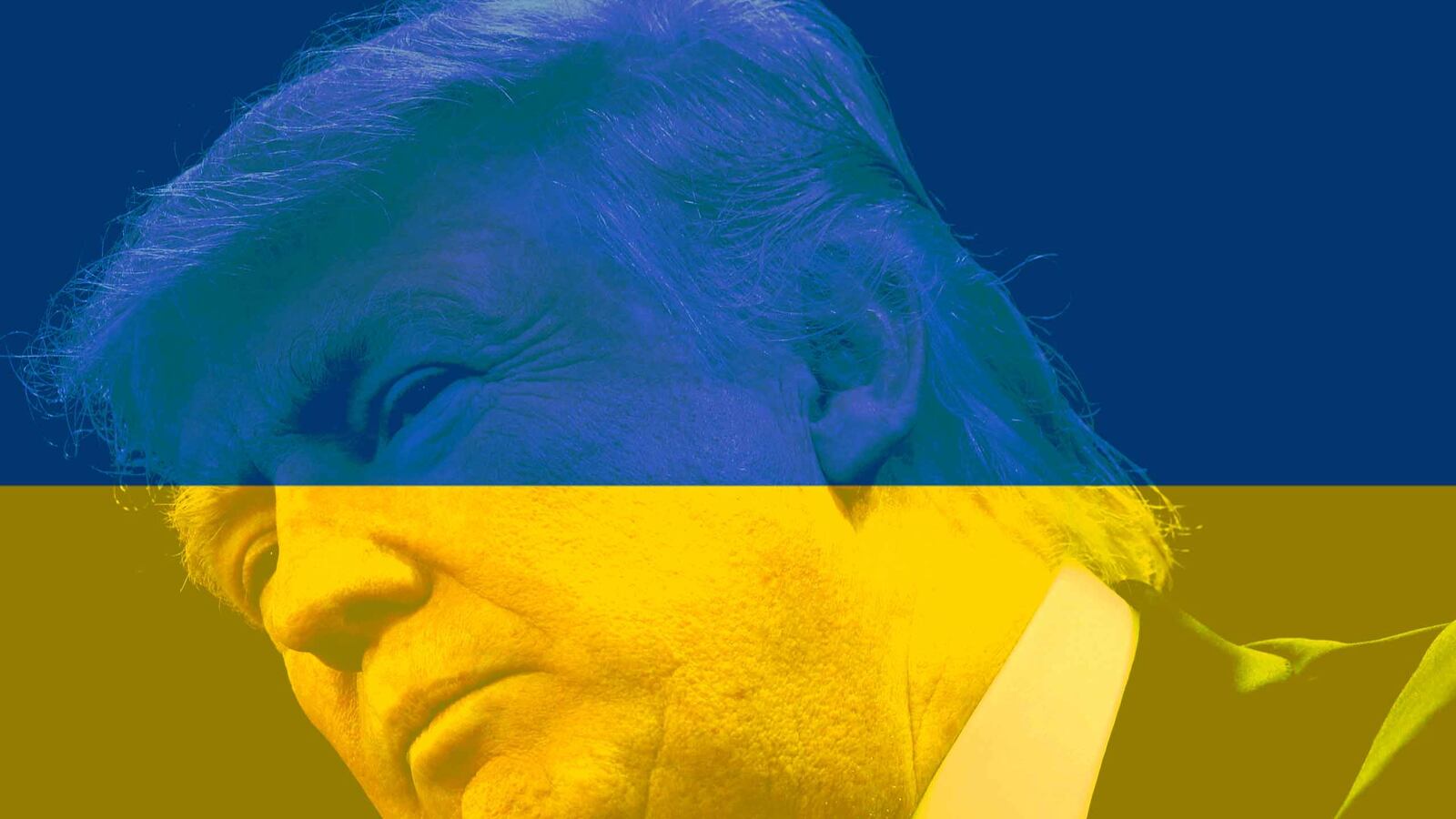KIEV — Perhaps you remember Ukraine. Perhaps you remember this war. But if you’re in the United States in the blur of the American presidential campaign, it must seem faint and far away.
For the people here, however, what they read and see coming out of Republican candidate Donald Trump sounds very loud, and clear, and tantamount to a death sentence for their country.
Adding despair to pessimism, they realize their own leaders aren’t really prepared if Trump wins.
It seems to them almost inconceivable that an American president would praise and be praised by Russia’s Vladimir Putin, who illegally annexed Ukraine’s strategic Crimea Peninsula in 2014 then started a shadow war waged by proxy forces and unidentified Russian soldiers to carve off eastern Ukraine (Donbas) like a butcher cutting a roast.
Of course, the factions that have set up “republics” in the east think Trump is great, just as many Russians in the Motherland do after a steady diet of Moscow-generated praise for The Donald.
But that’s certainly no consolation here in Ukraine’s capital.
At the recent Yalta European Strategy (YES) conference, held here in the capital instead of the resort town of Yalta, which is in Russian-annexed Crimea, a group of young Ukrainian professionals were discussing the way the world sees them, and might help them, or not.
Statements by European politicians who came to the forum struck many as “banal” and “indifferent” given the existential crisis that looms before them.
Olena Vynogradova, a 27-year-old lawyer supporting Ukrainians displaced by the war in Donbas, joined the forum to hear more about concrete, strategic plans for her country from Western experts. But those were not forthcoming, and the shadow of Trump loomed large without being addressed directly.
“If Trump wins, there will be no Ukraine,” Vynogradova told me. “Listening to Trump talking about the Crimea annexation [which he says he accepts] and Putin’s presidency [which Trump says shows superior leadership]. It made me realize that Trump would not be our friend and that our politicians do not really have a strategy for our life with Trump.”
Communications manager Alexandra Azarkhina, 25, also worried about her country’s future. She looked back on the tumult and hopes of the revolution centered in Kiev’s Maidan Square in late 2013 and early 2014. It overthrew a Putin crony in hopes of closer ties with a more liberal, wealthier, stronger, less intimidating European Union which, only two and a half years ago, seemed united behind the push for democracy and freedom.
“When we were on the Maidan Square, we fought for a war against corruption; we were full of idealism about the West. And now? I look at Brexit, at the U.S. elections, and my head goes round,” Azarkhina said. “It is scary.”
The founder and sponsor of the YES event, Ukrainian billionaire Victor Pinchuk, also sounded concerned. He said he wanted to shake things up by reminding the Western community that the war in Donbas is not just Ukraine’s problem.
“Some people in the West want to… delete Ukraine from the short list of global crises,” Pinchuk complained to the audience on the first day of the forum. “That is wrong. Ukraine is not a local but a global conflict.”
There are, however, so many of those competing for attention.
Alexander Kwasniewski, the former president of Poland, told me that the biggest challenge the EU countries are facing today is the immigration crisis. Even though Poland is on Ukraine’s western border, and war still rages in Ukraine’s east, Kwasniewski suggested the failed diplomatic peace formulas of the past could yet be the solutions for the future.
“Only by fulfilling the main principals of the Minsk agreement in the Normandy format,” could stability be assured, Kwasniewski insisted, as if the fighters on the ground knew, remembered, or cared what that meant.
Ukrainian politicians anxious for strong statements of support were, to say the least, disappointed.
MP Mustafa Nayem wrote in a post on Facebook that he was disappointed by French Foreign Minister Jean-Marc Ayrault’s de facto acceptance of Russian terms, including changes in Ukraine’s constitution, amnesty for the separatists, and special status for the breakaway republics. “It’s as if witnesses to a rape suggest to the victim to stop fighting and listen to the rapist’s demands,” said Nayem.
How could the West help Ukraine survive these crises?
Local authorities believe one way is to help Kiev reform Ukraine’s corrupt and unprofessional institutions, including the military.
“By mid October we’ll receive advisors coming from at least seven NATO countries to advise us on cyber security, and to strengthen democratic civilian control of our military,” Ukrainian presidential advisor Archil Tsintsadze told me. “I would suggest Russia not interfere in another country’s business.”
Tsintsadze is originally from the nation of Georgia, and remembers all too well what happened there. Despite a great deal of Pentagon support, Georgia’s security was still badly compromised in its war with Russia in the spring and summer of 2008. Russian tanks crossed into the country and rolled all the way to the outskirts of the capital Tbilisi—and that was when a supposedly hard-line George W. Bush was in the White House.
What if Trump is president of the United States and Putin decides to show what Trump calls admirable leadership by seizing all the territories he wants in the near abroad of Russia?
Nobody here has any confidence Trump would stand in Putin’s way.
Tsintsadze didn’t want to go deeper into the subject: “I envy Trump,” he said suddenly and out of context. “He is rich and he has a young wife; but my wife is much more beautiful.”
And this just in: Foreign Policy reports that Trump was invited to meet with Ukrainian President Petro Poroshenko on the sidelines of the United Nations General Assembly in New York this week. Trump’s campaign didn’t even bother to send Kiev an RSVP.





